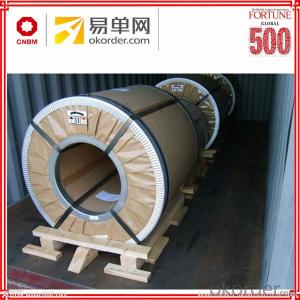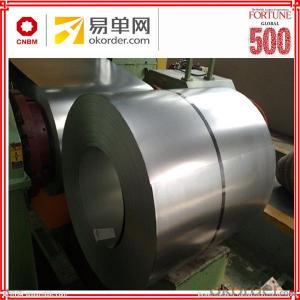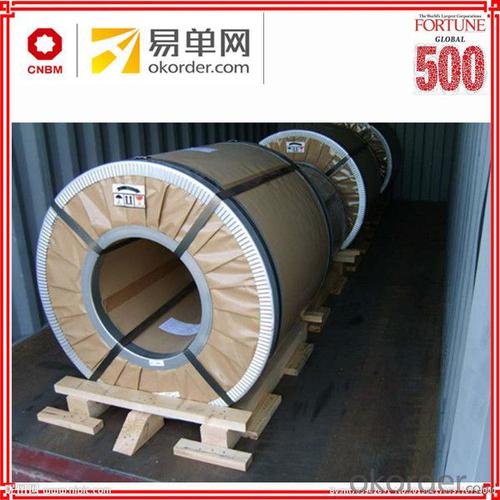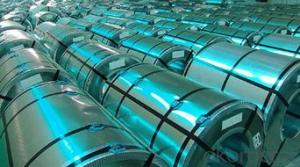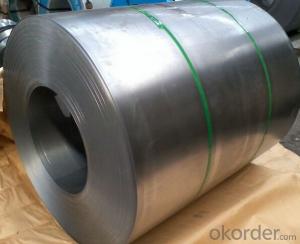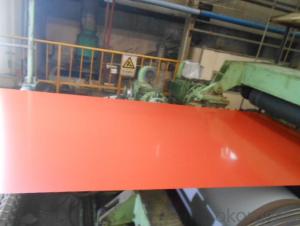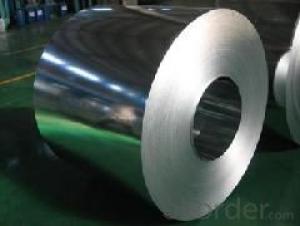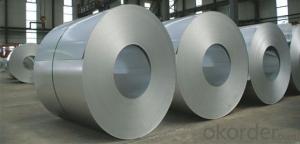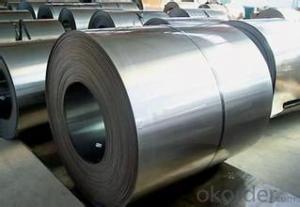Cold Rolled Steel Coil price shipping from china
- Loading Port:
- Shanghai
- Payment Terms:
- TT or LC
- Min Order Qty:
- 50 m.t.
- Supply Capability:
- 65450 m.t./month
OKorder Service Pledge
OKorder Financial Service
You Might Also Like
Specification
The raw material of cold rolled steel coil/sheet is high quality hot rolled product.
Cold rolled steel coil/sheet as defined in the EN 10130/98 standard, with guaranteed maximum mechanical characteristics and guaranteed minimum ductility and formability.
It is suited to formation by bending or drawing, which enables complex parts to be produced in good repeatable conditions and intended for indoor use.
Standard and Grade :
Cold rolled steel coils | ||||
JIS G3141-2005 | EN10130-2006 | ASTM A1008-12a | ||
Commercial quality | SPCC | DC01 | CS Type A/B/C | |
Drawing quality | SPCD | DC03 | DS Type A/B | |
Deep drawing quality | SPCE SPCF (non aging) | DC04 | DDS | |
Extra deep drawing quality | SPCG(non aging) | DC05/06 | EDDS | |
Pictures of Cold rolled steel coils
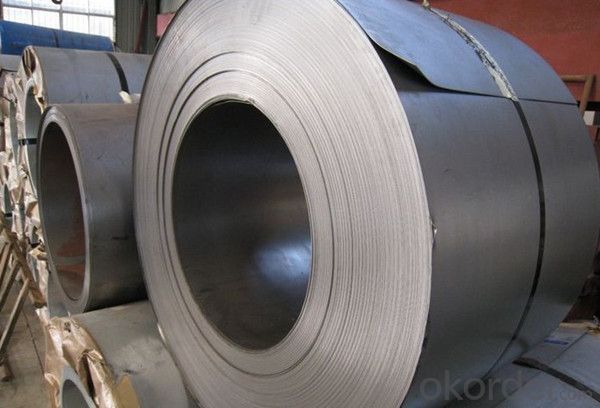
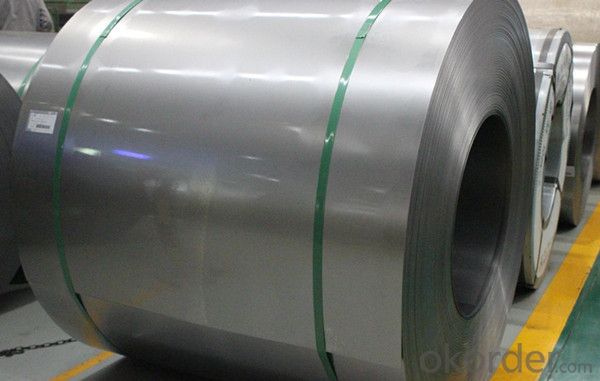
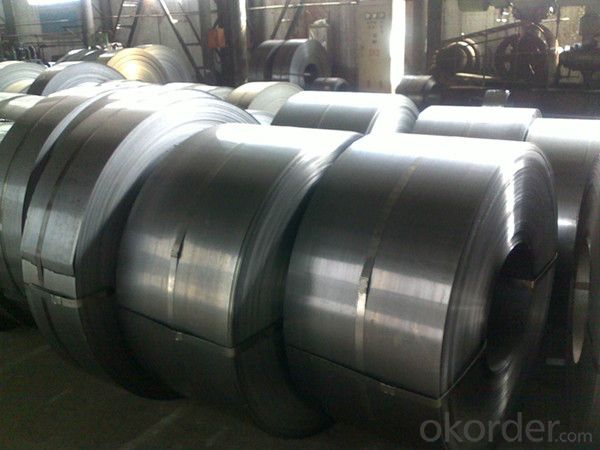
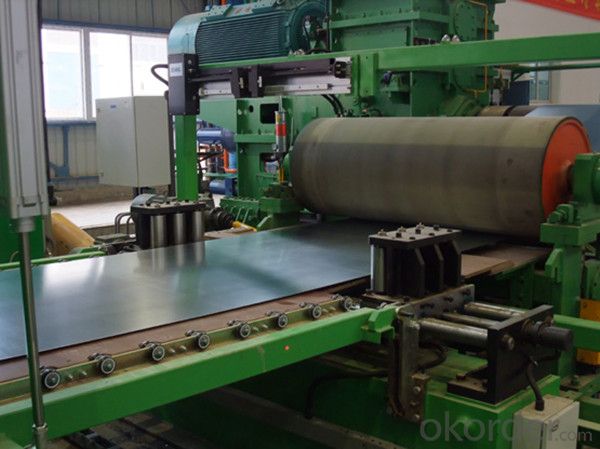
Application :
Automobile Industry, White Goods, Home Applicances, Oil & Air filters, semi product for coating with enamel or zinc, construction & building sector, air-conditioning, furniture, radiators, tubes, profiles, mechanical construction, shelving, containers, drums
Packing:
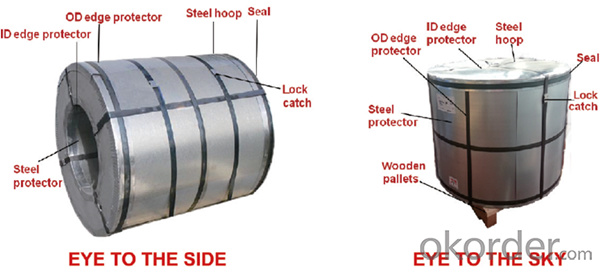
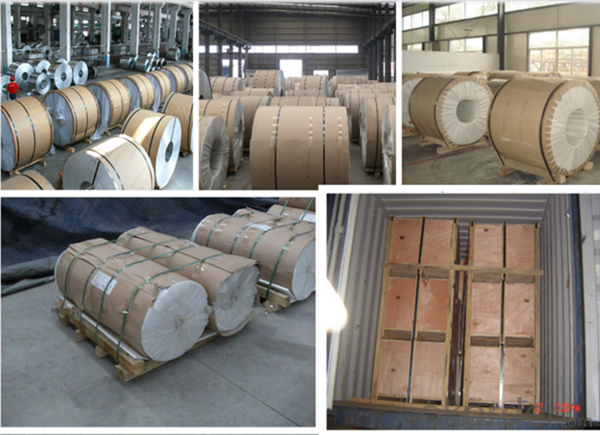
FAQ:
1. Can you offer OEM to me? What about MOQ?
Of course, we are a professional with OEM manufacturer for 9 years. the MOQ can be 50 ton/ order..
2. How to guarantee the quality of the products?
We have established the international advanced quality management system,every link from raw material to final product we have strict quality test;
We resolutely put an end to unqualified products flowing into the market. At the same time, we will provide necessary follow-up service assurance.
3. How long can we receive the product after purchase?
Usually within thirty working days after receiving buyer’s advance payment or LC.
We will arrange the factory manufacturing as soon as possible.
The cargo readiness usually takes 15-25 days, but the shipment will depend on the vessel situation.
4.How Can I Get Some Sample?
We are honored to offer you free sample, but courier charges will be on your side.
- Q: How are steel coils used in the HVAC industry?
- Steel coils are commonly used in the HVAC industry for various purposes such as heat transfer, refrigerant circulation, and air conditioning. They are typically found in heat exchangers, condensers, and evaporators, where they help in transferring heat between air and refrigerant. Steel coils play a crucial role in maintaining the desired temperature and providing efficient cooling or heating in HVAC systems.
- Q: What are the different types of steel coil grades and specifications?
- There are several different types of steel coil grades and specifications, including hot rolled, cold rolled, galvanized, and stainless steel coils. Each type has its own unique properties and uses. Hot rolled coils are produced at high temperatures and are commonly used in construction and manufacturing applications. Cold rolled coils are produced at lower temperatures and have a smoother finish, making them suitable for applications that require a higher level of precision. Galvanized coils are coated with a layer of zinc to protect against corrosion, while stainless steel coils contain a high percentage of chromium for added durability and resistance to corrosion. Overall, the choice of steel coil grade and specification depends on the specific requirements of the project or application.
- Q: The stainless steel drinking fountain had a little acid on it and rusted. I need to restore it. Is this possible?
- Stainless steel doesn't rust, whatever acid you got on it was some pretty bad stuff to make a reaction like that, you can try sanding down past the reaction point and polish it out but that's about it, that or it wasn't stainless to begin with. if its brushed chrome to simulate stainless it would have to be replated, not cheap. and probably not worth it
- Q: How do steel coils contribute to the manufacturing of construction materials?
- Steel coils contribute to the manufacturing of construction materials by providing a reliable and versatile raw material. These coils are typically made from high-quality steel and can be easily shaped, cut, and formed into various components such as beams, pipes, and sheets. The strength and durability of steel make it ideal for use in construction, ensuring the integrity and longevity of buildings and structures. Additionally, the consistent quality and availability of steel coils enable efficient and cost-effective production processes, making them an essential element in the manufacturing of construction materials.
- Q: What are the common coil thickness and width combinations available for steel coils?
- The specific requirements and standards of the industry can cause the available combinations for steel coil thickness and width to vary. Nonetheless, there are commonly used combinations that can be found. There is a range of options for coil thickness, varying from thin to thick coils. Thin coils typically have a thickness of 0.4mm to 3.0mm, while medium thickness coils can be around 3.0mm to 6.0mm. Thicker coils can range from 6.0mm to 25.0mm or even higher, depending on the specific application. The coil width also varies depending on the intended usage. Common options include widths of 600mm, 750mm, 900mm, 1000mm, 1200mm, 1250mm, and 1500mm. However, wider or narrower coils can also be available depending on the specific requirements of the customer or industry. Ultimately, the most suitable combination of coil thickness and width will depend on factors such as the intended application, manufacturing processes, transportation limitations, and customer preferences. It is crucial to consult with steel coil manufacturers or suppliers to determine the most appropriate options for your specific needs.
- Q: What are the different grades of steel used in coils?
- There are several different grades of steel used in coils, including low carbon steel, high carbon steel, stainless steel, and alloy steel. Each grade has its own unique properties and is used for specific applications based on factors such as strength, durability, corrosion resistance, and formability.
- Q: What are the different packaging options for steel coils?
- The different packaging options for steel coils include wooden crates, steel frames, and coil covers.
- Q: What are the factors to consider when selecting a supplier for steel coils?
- There are several factors to consider when selecting a supplier for steel coils. 1. Quality: The supplier's reputation for providing high-quality steel coils is crucial. The steel coils should meet industry standards and have consistent quality to ensure the durability and performance of the final product. 2. Reliability: It is important to choose a supplier that can consistently meet your demand for steel coils. They should have a proven track record of on-time delivery and the ability to handle large orders efficiently. 3. Cost: The pricing of steel coils is a significant factor to consider. While it is essential to find a supplier that offers competitive prices, it is equally important to ensure that the quality is not compromised. Comparing prices from multiple suppliers is advisable to find the best balance between cost and quality. 4. Range of Products: Look for a supplier that offers a wide range of steel coil products. This ensures that you have various options to choose from and can find the exact specifications and dimensions that meet your requirements. 5. Technical Expertise: A supplier with technical expertise and experience in the steel industry can provide valuable advice and assistance in selecting the right steel coils for your specific needs. They can also help with any customization or special requirements you may have. 6. Location and Delivery: Consider the supplier's location and their ability to deliver steel coils to your desired location. Choosing a supplier who is geographically closer to your facility can help reduce transportation costs and lead times. 7. Customer Service: A supplier who values good customer service is always preferable. They should be responsive to your inquiries, provide timely updates, and be willing to address any issues or concerns that may arise. By considering these factors, you can make an informed decision and choose a supplier that best meets your requirements for steel coils.
- Q: How do steel coil manufacturers handle custom orders?
- Custom orders for steel coils are handled by manufacturers through a methodical process. They begin by comprehending the specific requirements of the customer and engaging in detailed communication to gather information. This includes dimensions, tolerances, and other special needs. Manufacturers may offer technical expertise to ensure the feasibility of the custom order. Once the requirements are clarified, manufacturers proceed with designing and engineering the custom steel coils. Advanced software and engineering tools are utilized to create detailed designs and specifications that cater to the customer's unique needs. Prototypes or samples may be created for the customer's approval before full-scale production. After the design phase, manufacturers initiate the production process by sourcing the appropriate raw materials, such as steel coils with the desired composition and thickness. The coils undergo various manufacturing stages, including cutting, shaping, and forming, to achieve the desired dimensions and shapes. Specialized equipment and machinery guarantee precision and accuracy throughout the production process. Quality control plays a crucial role in handling custom orders. Manufacturers conduct thorough inspections and testing procedures at different stages of production to ensure that the custom coils meet the customer's specifications and industry standards. This involves checking for dimensional accuracy, surface finish, mechanical properties, and other specific requirements. Third-party inspection agencies may be involved, and manufacturers may provide customers with test reports and certifications to ensure quality assurance. Lastly, once the custom steel coils are manufactured and pass all quality checks, they are meticulously packaged and delivered to the customer. Manufacturers ensure proper packaging and shipping methods to prevent damage during transit and ensure the coils reach the customer in optimal condition. In summary, steel coil manufacturers handle custom orders by collaborating closely with customers, designing and engineering specialized coils, maintaining quality control throughout the production process, and delivering the custom coils to the customer's satisfaction. This systematic approach enables manufacturers to meet the unique requirements of each customer and provide high-quality custom steel coils.
- Q: What is the role of steel coils in the construction industry?
- Steel coils play a crucial role in the construction industry as they are used to manufacture a wide range of structural components and building materials. These coils are typically made from high-quality steel and are formed into various shapes and sizes to meet the specific needs of construction projects. From reinforcing bars and beams to roofing sheets and wall panels, steel coils provide strength, durability, and flexibility, making them an essential and versatile material in the construction industry.
Send your message to us
Cold Rolled Steel Coil price shipping from china
- Loading Port:
- Shanghai
- Payment Terms:
- TT or LC
- Min Order Qty:
- 50 m.t.
- Supply Capability:
- 65450 m.t./month
OKorder Service Pledge
OKorder Financial Service
Similar products
Hot products
Hot Searches
Related keywords
